Oh yes, the buttoned-up suits who sip coffee while teens are slaughtered like cattle, how grotesque. But morality isn’t measured by aesthetics. It’s measured by consequence. These people are literally sacrificing a few to save the many. Their hands are dirty because they’ve chosen duty over delusion. They run the last line of defense between Earth and ancient gods who would turn humanity into ash with a yawn. And what does Marty do?
Lights a joint and lights the fuse. It’s not that they enjoy the bloodbath, they normalize it to survive the trauma. Desensitization is a coping mechanism, not sadism. They’re not the threat, they’re the instruments. Like scalpels in a surgeon’s hand. Horrific? Yes. Evil? No. They’re fulfilling a role, designed by the Ancients, enforced by the Facility. The threat isn’t them. It’s what happens if they don’t act. It’s not chaos, it’s controlled chaos.
Mythology dressed in blood squibs. Without them, the ritual fails. And guess what happens then? Spoiler, it rhymes with “total extinction.” Five college students. The Whore, the Athlete, the Scholar, the Fool, and the Virgin.
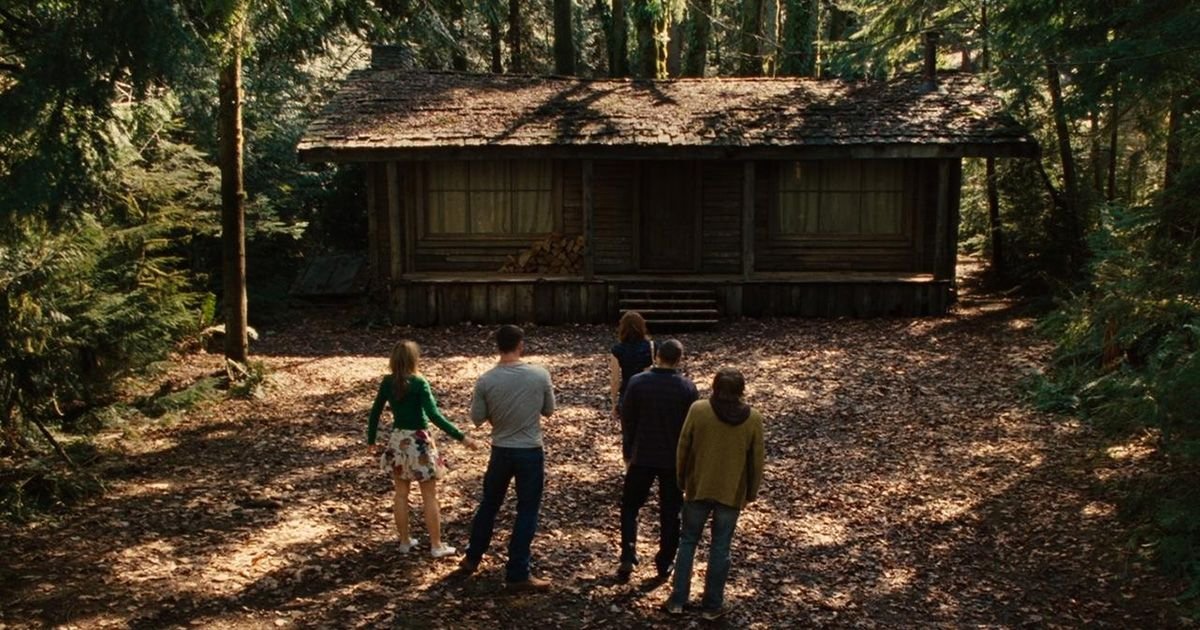
But here’s the gag, the film knows these are roles, not people. Dana’s “virginity” is symbolic. Curt is a sociology major, not a meathead. Jules is brilliant before her blonde-fiction. These are real people flattened into narrative meat. Because the ritual demands it. The Ancient Ones aren’t impressed by nuance.
They crave myth, old-world sacrifice. Blood and symbolism. And the Facility complies, not out of cruelty, but necessity. The cost of deviation? Global annihilation. There’s no room for authenticity. Only archetype. Sitterson and Hadley aren’t evil. They’re exhausted bureaucrats holding back Ragnarök with coffee, banter, and brutal pragmatism.
Every lever pulled is calculated. Every horror released is a scalpel to the throat of chaos. They’re the last priesthood, clerics with clipboards, fighting entropy with ritualized murder. God forgive me, it works. The Fool archetype is supposed to die early. But Marty doesn’t. Why? Because he sees. He’s immune to their chemical fog. His paranoia isn’t madness, it’s clarity. He’s the wrench in the gears. The unpredictable factor.
And here’s where the tragedy festers. Marty’s intelligence is only used to destroy the system, not to replace it. He sees the puppet strings. But instead of cutting them and building something better, he says, burn it all. Dana, bruised and blood-soaked, stands at the edge of the world. The ritual needs one more death.
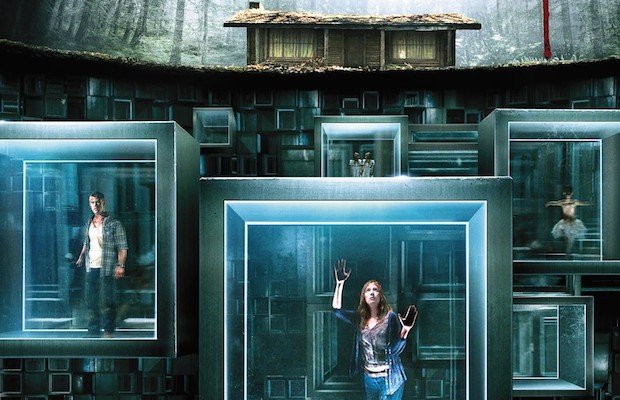
One last sacrifice to stave off extinction. She hesitates. Understandable. But Marty? Oh no, Marty isn’t torn. He’s smirking. Philosophical. Detached. He says, “Maybe the world should end.” And just like that, it does.
Not because they couldn’t save it, but because they chose not to. Was it the gods? Too distant. The Facility? Too necessary. The monsters? Just tools. It’s Marty, our “hero”, who chooses annihilation over compromise. He looks at a broken system and decides, if I can’t fix it, I’ll watch it die. He takes the world with him. Oh, Marty. He unmasks the system but doesn’t replace it with a better one. He doesn’t liberate, he obliterates. The world is ending, and his answer is.
“Meh, at least I didn’t play along.” How noble. How utterly useless. That’s not rebellion, that’s narcissistic martyrdom. He prioritizes his moral superiority over the survival of 8 billion people. He’s not the stoner Jesus. He’s the Judas who sank the ark. Dana was ready to pull the trigger. She got it. Sacrifice isn’t evil, it’s mature. But Marty? He’s too in love with his own philosophy. His choice isn’t brave. It’s petulant. He’d rather die right than live wrong. But in doing so, he condemned everyone.
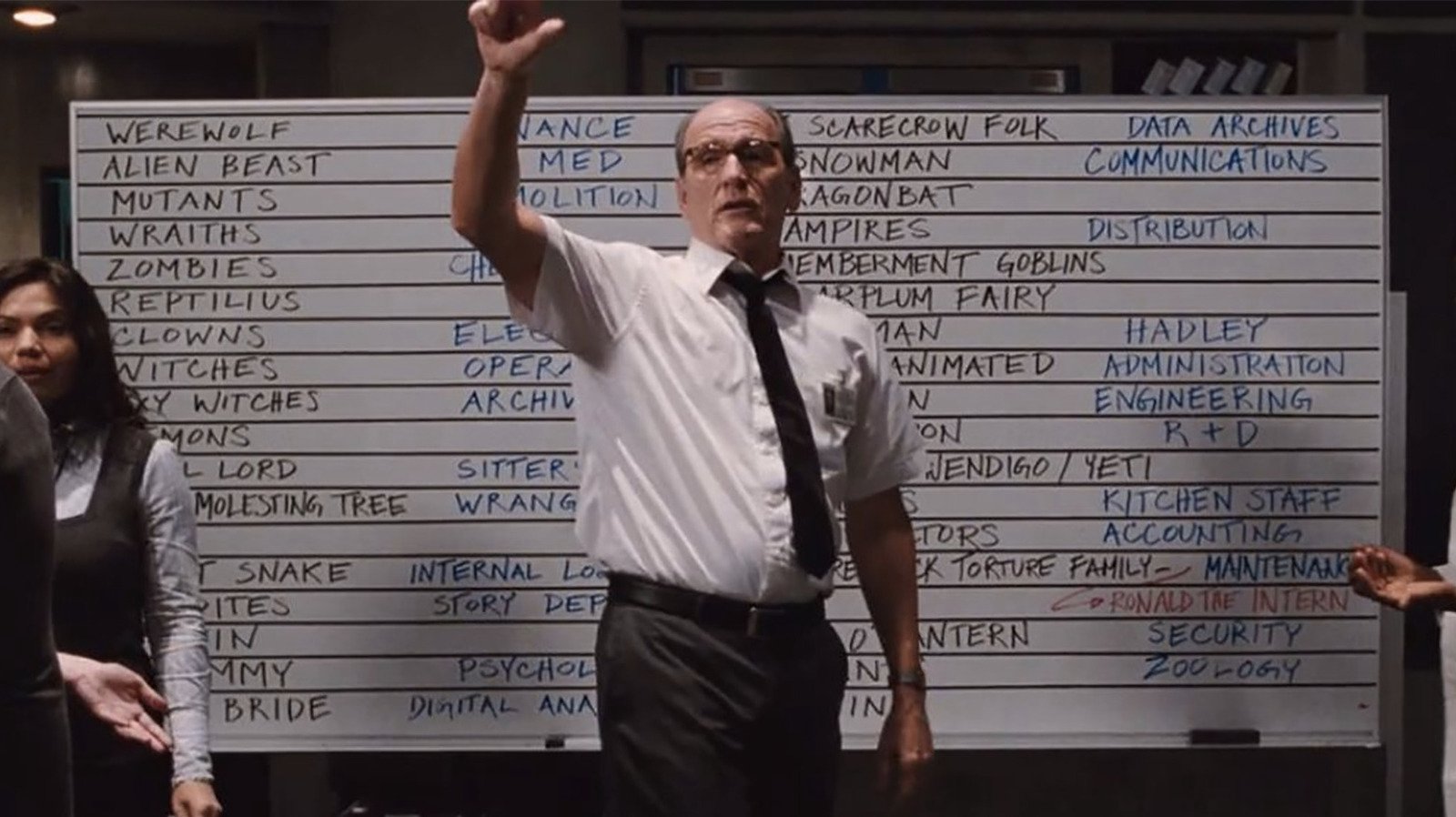
These aren’t your usual genre sadists with butcher’s aprons and deranged giggles. They’re men in slacks. Coffee in one hand, clipboard in the other, joking about bets on monster selections while lives are ending beneath them. But here’s the punchline, they’re right. They don’t like the bloodshed. But they endure it because someone must.
They wear irony and bravado like hazmat suits, shielding themselves from the mental radiation of what they do. The alternative? Unleash gods who’d peel the crust from the earth like it’s a grape skin. Their crime isn’t cruelty. It’s efficiency. And in this world? That makes them heroes. Oh yes, the monster zoo. For the apocalyptic.
A demon smorgasbord curated for maximum scream per capita. But those nightmares? They’re controlled. Catalogued. Assigned. They exist not to indulge fear, but to weaponize it in the service of order. The Sugarplum Fairy? That toothy ballerina is sacred geometry in motion. The Merman? A divine harpoon wrapped in flesh and sorrow. These aren’t villains. They’re wardens of the status quo.
Guardians of survival wearing the skins of nightmares. Every gory kill isn’t indulgence, it’s prayer. This is the part the Martyrs of the world never grasp. Real morality doesn’t get to be soft. Not when you’re playing god against actual gods. You don’t get to wring your hands and whimper about ethics while the world teeters on the edge of annihilation.
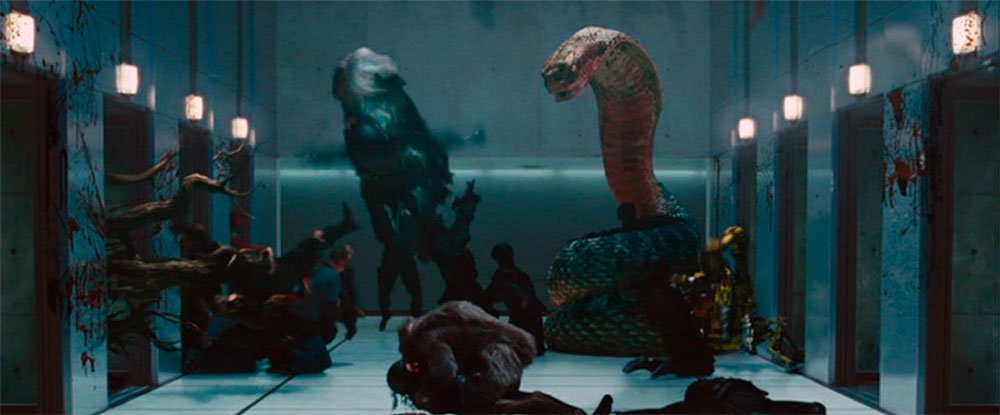
You act. You kill five to save billions. It is still math. Cold. Logical. Necessary. Martyrdom is romantic. Survival is ugly. And that’s why the Facility endures. Because it’s willing to be the villain in the story if that means the story doesn’t end. He’s not the Fool. He’s the Saboteur. Marty’s role in the ritual was never to be the clown or the comic relief. His actual function was to represent disruption, the one who questions, who sees beyond the curtain.
And what does he do with that power? He doesn’t challenge the system to reform it. He doesn’t sacrifice himself to short-circuit it in a meaningful way. He just says: “No.” Marty is the walking embodiment of the rage-fueled, do-nothing rebel. The one who points at the burning building and smirks, “Told you it was a fire hazard,” while people are still inside.
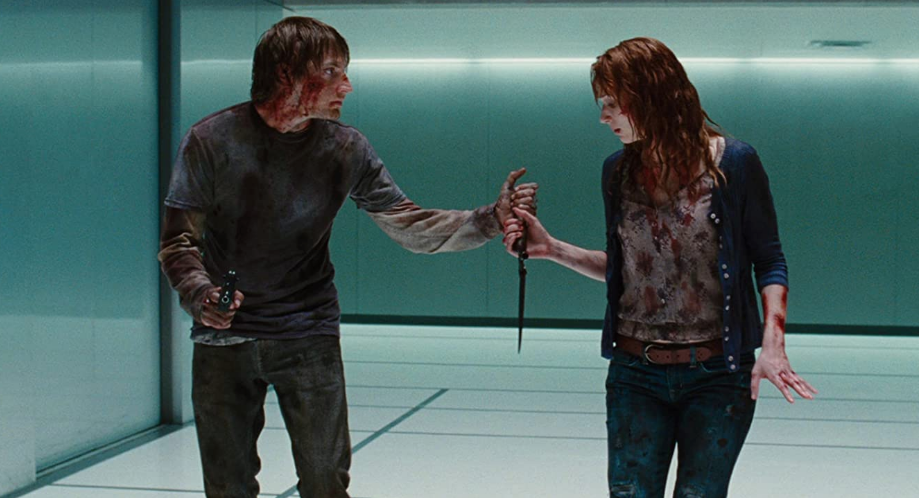
Let’s break down that quote: “If you’ve got to kill all my friends to live, maybe you don’t deserve to live.” Sounds righteous. Poetic, even. But look closer. That’s not moral clarity. That’s emotional vengeance.
The system killed his friends, so he decides no one gets to live. Classic scorched earth thinking. Classic narcissistic wound. He’s not saving the future. He’s avenging the past. And he’s willing to sacrifice billions for the satisfaction of not being complicit. Picture it, ancient gods beneath the crust, stirring. The Director lays out the stakes. One more death and it all resets. Humanity gets another year. Another chance. And Marty? He shrugs. No plan. No vision. No legacy.
He chooses extinction, not because it’s better, but because it’s easier. He takes a drag, leans back, and shares the last moment with Dana as the world is consumed. And here’s the kicker, he’s still painted like a hero. Why? Because we love rebels. We worship nonconformity. But when that rebellion becomes self-serving fatalism? That’s not resistance. That’s annihilation. Because if Marty has parents out there, siblings, maybe a niece who just started school, or a grandmother baking pies in Oregon…?
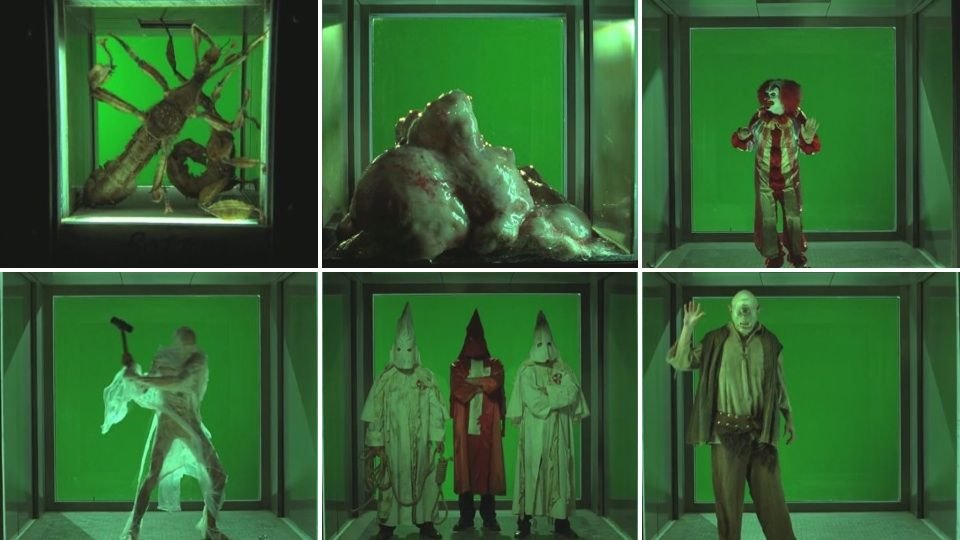
He murdered them all. Not by accident. Not by miscalculation. By choice. He looked at the world, including anyone who ever loved him, and said: “Better you die than I participate.” And that, is not heroism. That’s a suicide note with delusions of grandeur.
Every ritual step is met not with celebration, but with relief. The virgin bleeds? Exhale. The fool falls? Check the box. That’s not sadism, it’s survival stress. You feel it in Hadley’s quiet devastation when the Merman finally gets him. That wasn’t karma, it was fate snapping back like a whip. This is not an evil operation. It’s a dam against chaos. And every button pressed, every lever pulled, is another stone wedged into a crumbling wall.
Sitterson and Hadley don’t like their job. They endure it. For you. For all of us. Ah, the artifact room, like walking through a reliquary of controlled horror. Each cursed item isn’t just a plot device. It’s an offering. A cultural myth tied to a system that works, barely. They’ve spent decades refining it, expanding the pantheon of nightmares, ensuring there’s always a story that fits the ritual shape.
That’s not exploitation. That’s liturgical curation. And every time a group chooses their doom, they volunteer their fate in accordance with mythic law. It’s free will with bloody consequences. The gods respect that. You know who doesn’t? Marty. Ah yes, the big crowd-pleaser. The moment every horror fan squeals with glee as blood paints the walls.
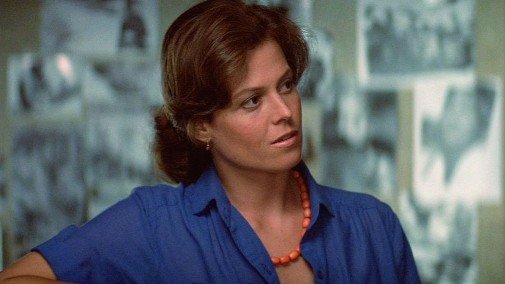
But narratively? It’s catastrophe. That’s not justice. That’s containment breach. That’s not the oppressed rising. That’s the immune system going septic. Marty unlocked Pandora’s box, mistaking chaos for liberation. But once those monsters are free, it’s not a message. It’s a massacre. Every person torn to shreds, innocents, staff, bystanders, they die because Marty wanted to play righteous rebel without a plan. He thinks he broke the machine. What he really did was cut the tether holding the world in place.
Sigourney Weaver enters like a prophet, weary and severe, offering the final chance. One more death. One life for billions. A button, a bullet, a moment of clarity. And Marty? He shrugs. Shrugs. Not out of bravery. Not even fear. But disdain. He believes if the world needs this kind of blood to survive, then maybe the world shouldn’t survive. A beautifully packaged nihilistic tantrum. And then he lights up.
As if it’s just another night in the woods. As if everyone didn’t just die for his “principle.” Here’s the raw, blistering question at the heart of Cabin in the Woods. What is one life worth when billions hang in the balance? And the film doesn’t whisper its answer, it screams it through every mutilated teenager, every switch pulled in the control room, every death weighed against global extinction. The ritual is cruel. But it is honest. It speaks.
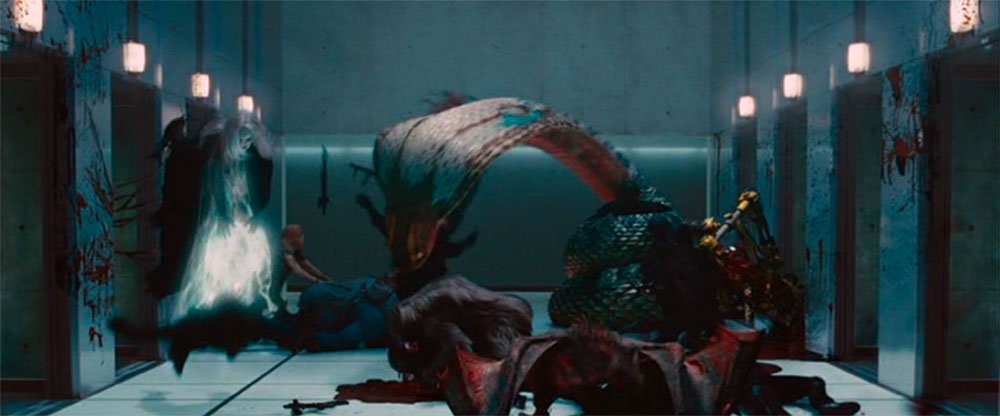
“This is the cost. Pay it, or everyone burns.” And Marty? Oh, sweet Marty… he doesn’t even flinch. He chooses survival, but only his own. Not Dana’s. Not humanity. Just his. It’s not a resistance to evil. It’s a refusal to carry the weight. And that’s the true cowardice: not dying for what you believe in, but refusing to kill, even when it’s the only way to save everything. Some folks want to play cute and say, “Oh, they’re metaphors for audience expectations.” Wrong altar, wrong sermon. These aren’t symbols.
These are apex predators of creation. Old gods. Real gods. Buried beneath the earth like loaded guns under the bed of reality. They don’t want catharsis. They want order, blood-soaked and precise. The ritual is not performance, it’s sacrament. A sacred machine built to keep the primordial wrath at bay. And Marty? He didn’t just reject a story structure. He broke the damn world.
There’s no metaphor when the mountain splits open and a hand the size of a continent reaches out to crush you like an ant. But Cabin twists the knife. It speaks. What if the outsider wasn’t the solution? What if the buttoned-up, emotionally distant government agents were the real heroes all along? Hadley and Sitterson didn’t die as monsters. They died as martyrs. They carried out horror, so others didn’t have to.
Their blood was a shield. Their laughter, a mask. And when that shield shattered, when Marty refused to step up? The world died screaming. Marty didn’t destroy oppression. He destroyed structure. He shattered the only system keeping hell beneath our feet. A tragedy not of hubris, but of refusal.
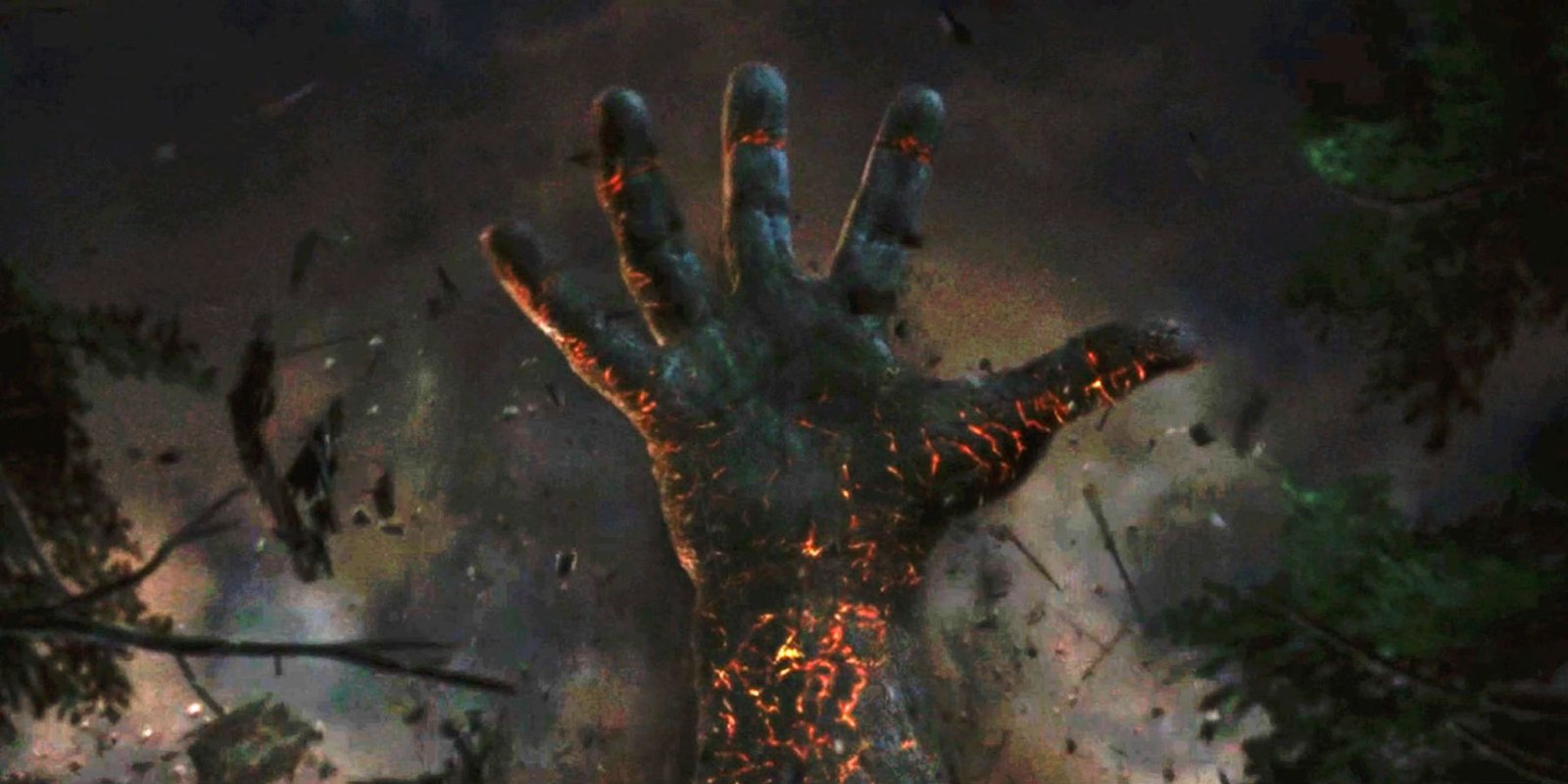
A story where the villains wore headsets, and the hero wore a smirk that doomed the world. Where the true monsters weren’t fanged or winged or stitched, they were us, craving catharsis, cheering as the altar crumbled. The Facility weren’t evil. They were necessary. The monsters weren’t chaos. They were ritual. Marty wasn’t salvation. He was apocalypse with a punchline. He didn’t rewrite the rules.
He deleted the whole damn book. And we, complicit little voyeurs that we are, we cheered. Because we didn’t want survival. We wanted subversion. We wanted a middle finger at the gods, even if it meant ending the world. Forget the tidy idea that the Ancient Ones are some cute stand-ins for audience expectations. That’s child’s play. Academic fluff. These are not “meta.” These are mythic. The Ancients are old-world gods in the truest, most terrifying sense, they are the Titans of Greek legend.
The Leviathan of the deep. The Anunnaki, the Outer Gods, the divine predators that a civilization built to forget. And the ritual? That’s not metaphor either. That’s the only leash humanity has left. Every culture did its version, Blood on Aztec stones. Greek oracles demanding virgins for dragons. Witch burnings, exorcisms, offerings to the sea. This isn’t entertainment. It’s containment. And when Marty let it fail, what came next wasn’t a story. It was judgment. You felt it, didn’t you? That hand bursting through the earth like a divine sledgehammer? That wasn’t CGI spectacle.
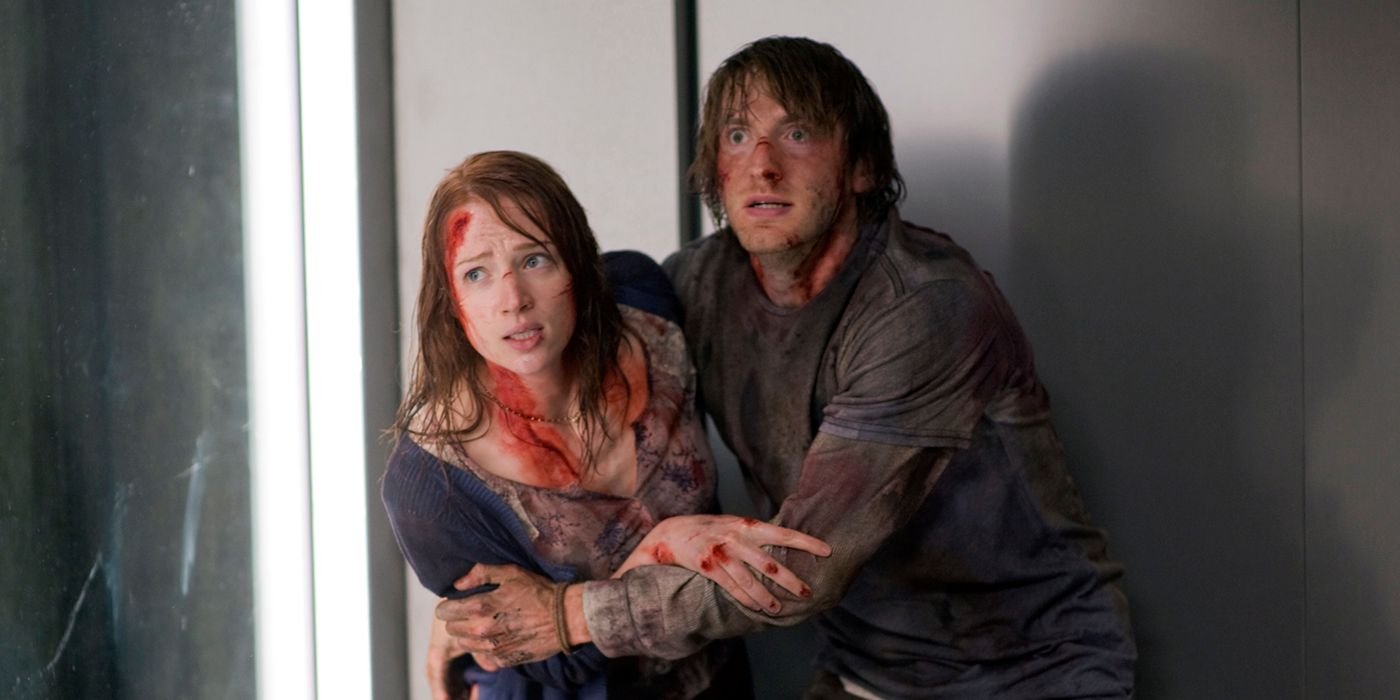
That was Genesis in reverse. A world unmade. Just like in Wrath of the Titans, when Kronos, the original world-breaker, rises and the gods scatter like roaches. The ground splits. Time collapses. Mortals become kindling. The Ancients in Cabin are that level of divine.
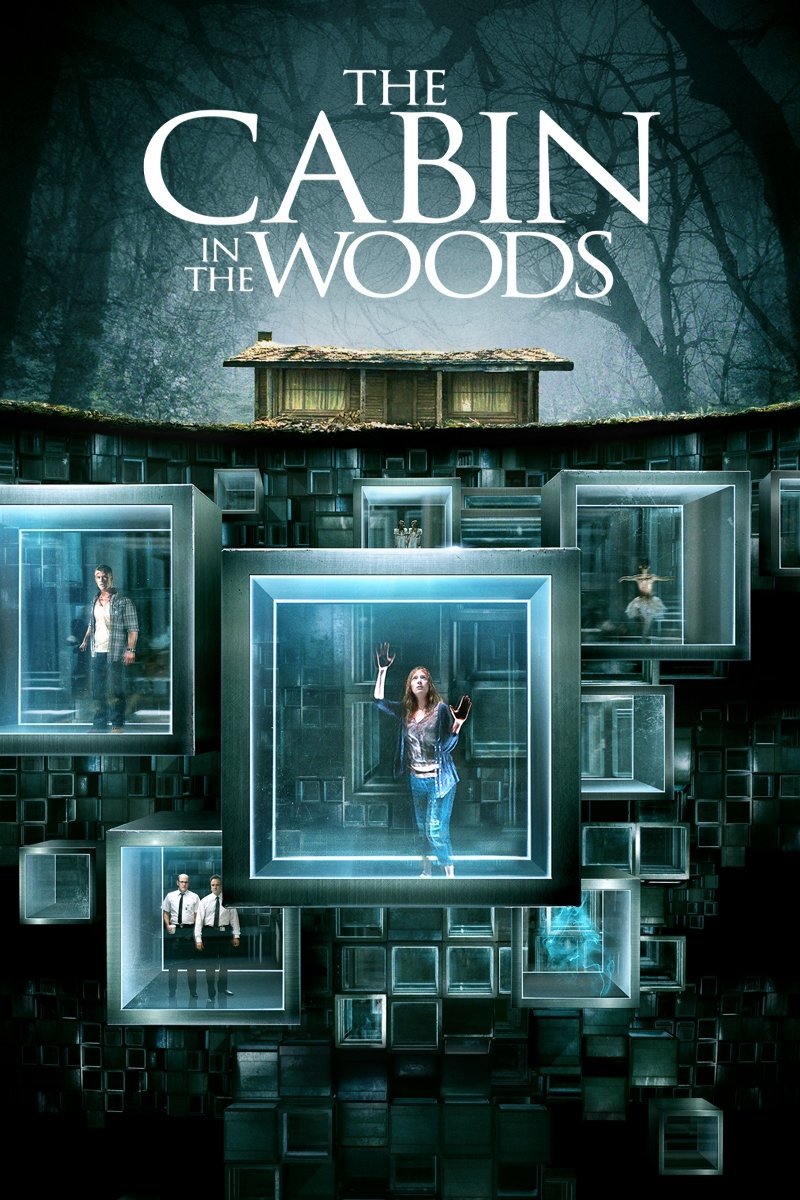
They’re not the ones who ask for sacrifice. They’re the ones who demand it, and if they don’t get it? They take everything. In a world of ancient wrath and sacred blood, inaction is still a choice. Marty made his. And he made it for everyone. He had all the clarity. All the truth. All the power to stop the end. And what did he do with it? He chose self-preservation wrapped in a stoner shrug. Not rebellion. Not resistance. Not principle. Ego. “If this is what it takes to live, maybe we don’t deserve it.”
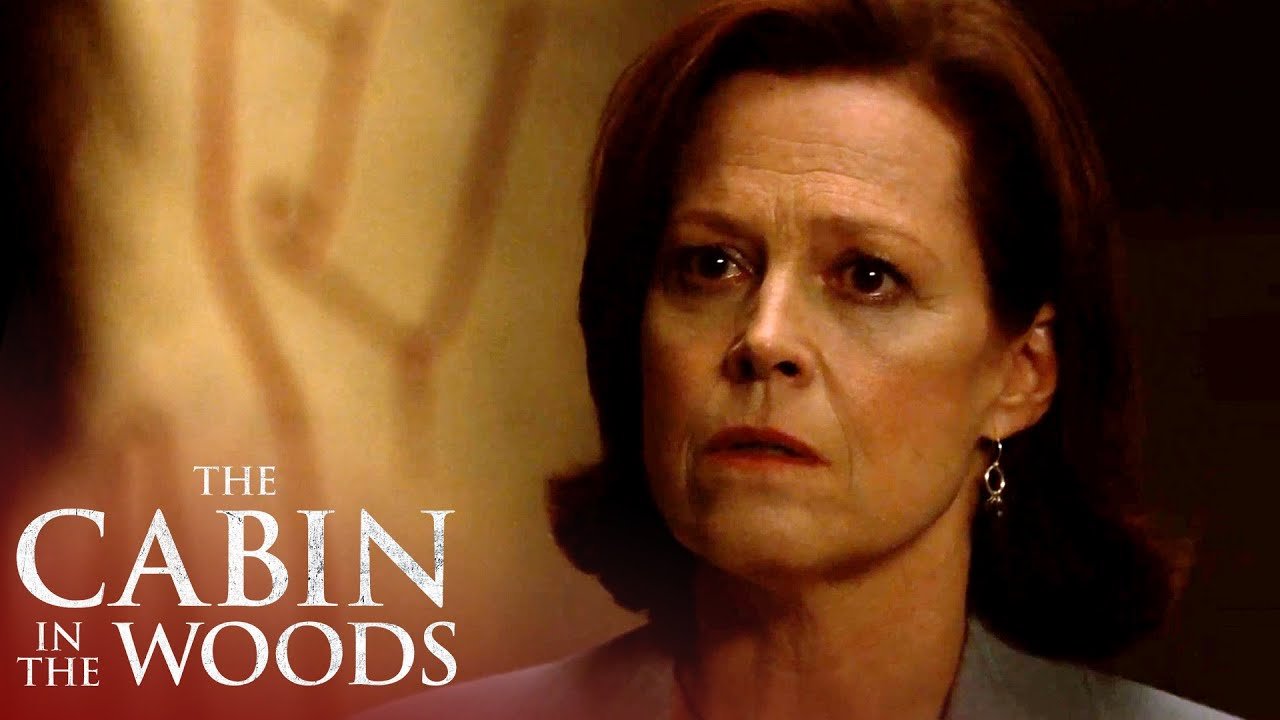
You don’t. Not in the literal “doesn’t believe in God” way. In the philosophical sense, no higher duty, no sacred order, no obligation beyond self. No reverence for humanity. No belief in shared fate. No sacrifice for the collective. The sacred moment came. The world asked, “Would you give everything to save us?” And he answered with apathy and ashes.
Because that’s the trick, isn’t it? That’s the horror buried inside the horror. He didn’t rebel against tyranny. He rebelled against responsibility. And we cheered. Because some part of us craved the chaos. Craved the shrug. Craved that sick little vindication.
“Maybe the world deserves to burn.” But it didn’t. He did. Marty wasn’t the Fool. He was the Executioner, of humanity. He stood at the altar of the gods and instead of dying to save the world, he watched it die for him. “I’m sorry I let you die,” should’ve been his last words to Dana. But instead, he lit a joint. So, tell me, love, if you were Dana, gun in hand, world on your shoulders, and a button glowing red at your feet…Would you pull the trigger?
Or sit down beside him in the ruin, light up, and whisper: “Let it end.” Because that’s the question that lingers, isn’t it? Who’s the real monster? The ones who kill to save the world? Or the one who won’t kill… and lets it all burn?



